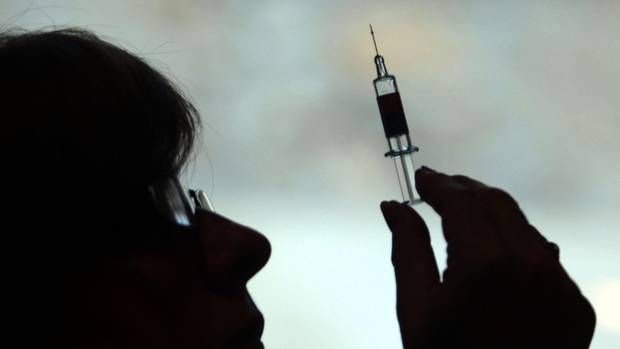
A British woman has become the world’s first patient to trial the first ever natural cancer cure administered via a vaccine.
The new vaccine has been designed to stimulate the body’s own immune system so that it destroys tumors that have spread in the body.

BYPASS THE CENSORS
Sign up to get unfiltered news delivered straight to your inbox.
You can unsubscribe any time. By subscribing you agree to our Terms of Use
35-year-old Kelly Potter will trial the vaccine over the course of two years in an attempt to rid the cervical cancer she was diagnosed with in July 2015.
Independent.co.uk reports:
At the same time, the patients on the trial will be prescribed a chemotherapy drug that should, at low doses, “lift the brakes” on the immune system so that it is no longer prevented from attacking the body’s own cancer cells, scientists said.
Ms Kelly, who lives in Beckenham, Kent, was diagnosed with stage four cervical cancer and was eligible for the trial at Guy’s Hospital in London because the disease has unfortunately spread to other sites in her body.
“Although I had excellent treatment at Guy’s where the cancer was stabilised, it had already spread to spots on my liver and lungs. So when I was told that I may be eligible for this trial, I was delighted,” Ms Potter said.
“To be part of this trial has changed my life for the better. It’s been a very positive experience and really interesting. I feel honoured to be involved. You get the best treatment anyway at Guy’s but it’s fantastic to be part of something that could be ground breaking,” she said.
Ms Potter was injected with the vaccine on 9 February and has another seven visits to the hospital to complete the treatment. Doctors have warned her that she may experience flu-like symptoms, although none has appeared to far, she said.
“My hope for the future is to beat the cancer for as long as I can, and if I can’t, I have come to terms with that. I would like to go on and inspire others with cancer,” she said.
The vaccine contains a small fragment of protein from an enzyme called human telomerase reverse transcriptase (hTERT), which allows cancer cells to divide continuously. It is hoped that by injecting this antigen into the bloodstream, it will stimulate the immune system to make antibodies that attack cancer cells but leave normal, healthy cell untouched, scientists said.
“We know that the immune system in patients with advanced cancer is suppressed, so it’s unable to recognise and kill cancer cells,” said Professor Hardev Pandah, principal investigator on the trial from the University of Surrey in Guildford.
“In this trial we are investigating a form of immunotherapy designed to activate the body’s immune system by administration of a vaccine based on fragments to a key cancer protein,” Professor Pandah said.
James Spicer, the chief investigator on the trial at Guy’s and St Thomas’ Biomedical Research Centre in London, said that low doses of a chemotherapy drug will be given to the patients alongside the vaccine in order to stimulate an effective immune response against tumour cells.
“The unique feature of this study is the use of additional agents to boost the vaccination response. It is hoped this will abolish the inhibitory effect of regulatory immune cells present in the patients’ circulation, which are believed to have limited the effectiveness of previous cancer vaccine approaches,” Dr Spicer said.
“There are very few solid tumours that shouldn’t be susceptible to this sort of treatment. This is a phase one trial, but we are pretty confident that it will be safe – but whether or not it will be effective, we will have to wait and see,” he said.


Be the first to comment